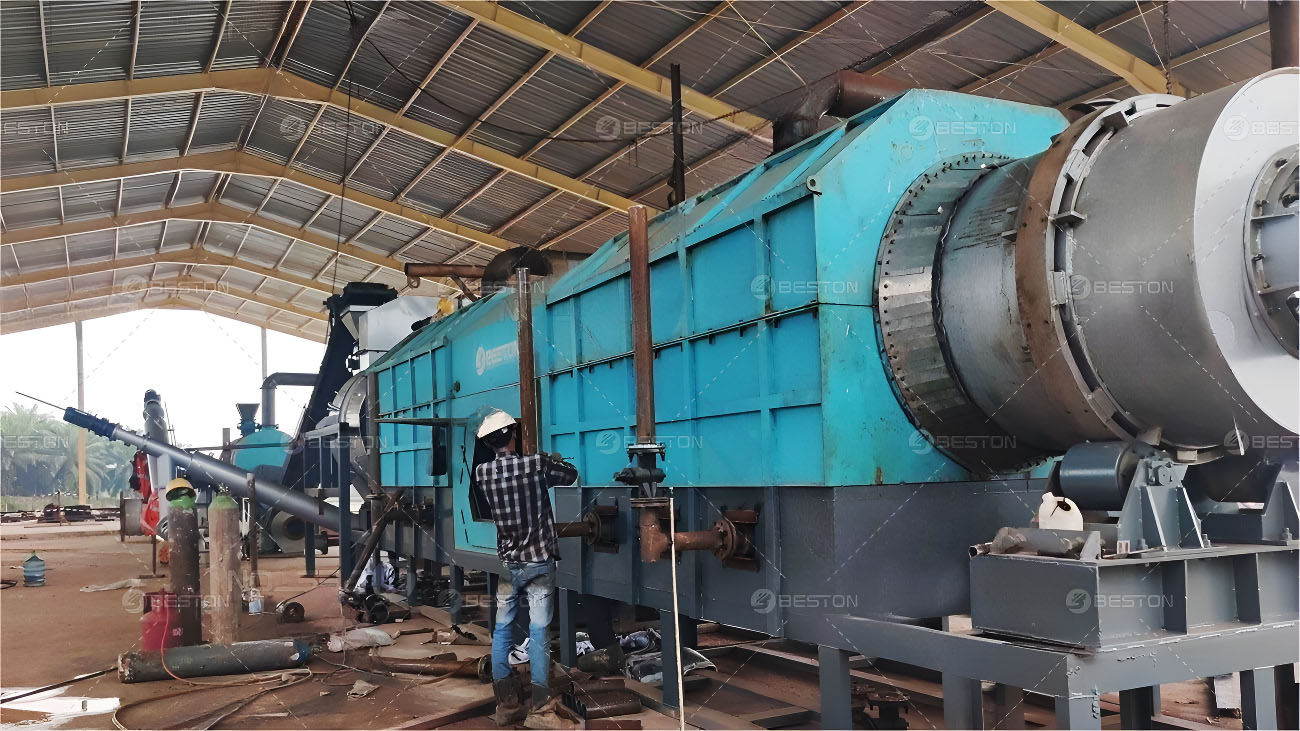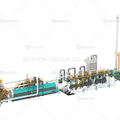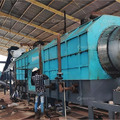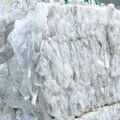The biochar industry has gained significant momentum in recent years, driven by its potential for carbon sequestration, soil enhancement, and sustainable waste management. For industries and entrepreneurs considering an investment in this burgeoning field, the choice of equipment is paramount. A biochar machine, which is responsible for converting organic material into biochar via pyrolysis, forms the backbone of any biochar production enterprise. However, before committing capital to such a machine, there are several critical factors that need to be evaluated to ensure long-term operational success and profitability.
1. Feedstock Versatility
One of the most important considerations when selecting a biochar machine for sale is the versatility of feedstock. Different biochar machines are optimized for varying types of biomass, including wood chips, agricultural waste, and even municipal solid waste. Each type of feedstock has its own properties—moisture content, density, and chemical composition—that can significantly affect the efficiency and output quality of the machine.
A machine that can process multiple feedstocks offers greater operational flexibility. This adaptability is particularly important if you plan to source biomass from different suppliers or if you foresee fluctuations in feedstock availability. Conversely, machines that are specialized for a single type of feedstock may provide superior efficiency and yield but at the cost of limiting your operational versatility. Carefully assess your long-term feedstock strategy before making a decision.
2. Production Capacity
The production capacity of a biochar machine is another critical factor that directly influences both the scale of your operations and the potential return on investment. Machines are available in various capacities, ranging from small units designed for research or small-scale production, to large industrial systems capable of processing several tons of biomass per day.
When assessing capacity, consider not only your current production goals but also potential future expansions. If you plan to scale your operations over time, it may be more cost-effective to invest in a higher-capacity machine upfront rather than having to upgrade later. However, larger machines come with higher initial capital costs, increased energy consumption, and potentially more complex maintenance requirements.
Striking a balance between your current needs and future scalability is key. Opting for a modular system that allows for future capacity upgrades could provide the flexibility you need without the financial burden of oversizing from the outset.
3. Energy Efficiency and Operating Costs
Energy efficiency is a crucial factor that can significantly impact the long-term profitability of a biochar operation. Pyrolysis, the process used in biochar production, requires a substantial amount of heat energy. Therefore, the efficiency with which a biochar machine consumes energy can directly influence operational costs.
Modern biochar machines are often equipped with energy recovery systems that capture the syngas—a byproduct of pyrolysis—and use it to fuel the process itself. This not only reduces the need for external energy inputs but also minimizes greenhouse gas emissions. Machines with advanced heat recovery systems can significantly lower operating costs over time, making them a more sustainable and cost-effective option.
In addition to energy efficiency, it’s important to consider other operational costs such as labor, maintenance, and feedstock procurement. Some machines may require specialized technicians for operation and maintenance, which could increase labor costs. Others may have higher upfront costs but offer lower long-term maintenance requirements. Weighing these factors holistically will give you a clearer picture of the machine's overall cost-effectiveness.
4. Quality of Biochar Output
The quality of the biochar produced is a key determinant of its marketability and application. High-quality biochar is typically characterized by a high carbon content, low ash content, and a porous structure that enhances its ability to retain water and nutrients. These properties make biochar particularly valuable as a soil amendment in agricultural applications, as well as in environmental remediation projects.
Different biochar machines can produce biochar of varying quality, depending on factors such as operating temperature, residence time, and feedstock type. Machines that offer precise control over pyrolysis parameters allow for the customization of biochar properties to meet specific market demands. If your primary market is agriculture, for instance, you'll want a machine that produces biochar with the right porosity and nutrient retention capabilities. For industrial applications, higher carbon content may be the priority.
It's worth noting that biochar quality can also be influenced by post-production processing. Some machines include additional features for cooling, sorting, and packaging the biochar, which can help to improve its marketability and ensure that it meets industry standards.

5. Environmental Impact and Compliance
Sustainability is often one of the main drivers behind the decision to invest in biochar production. Therefore, the environmental impact of the biochar machine itself should not be overlooked. Look for machines that incorporate emission control systems to minimize the release of harmful gases such as carbon dioxide, methane, and volatile organic compounds (VOCs). Some machines also come equipped with filtration systems that capture particulate matter, further reducing the environmental footprint.
In many regions, biochar production facilities are subject to stringent environmental regulations, particularly with respect to emissions. Ensuring that the machine you invest in meets these regulations is critical to avoiding fines, penalties, or even shutdowns. Additionally, compliance with environmental standards can enhance the marketability of your biochar, particularly in industries that prioritize sustainability.
6. Technical Support and Maintenance
The technical complexity of biochar machines means that regular maintenance is essential to ensure optimal performance and longevity. Before making an investment, it’s important to assess the availability of technical support, spare parts, and after-sales services from the manufacturer. Some suppliers offer comprehensive service packages that include routine maintenance, troubleshooting, and operator training. This can be particularly valuable if you lack in-house expertise in operating pyrolysis equipment.
When evaluating maintenance requirements, consider the ease of access to spare parts and the availability of local technicians who can carry out repairs. Machines that rely on proprietary components or require specialized knowledge for servicing may result in higher maintenance costs and downtime.
7. Return on Investment (ROI)
As with any capital investment, the expected return on investment (ROI) is a critical consideration. The profitability of a biochar operation depends on several factors, including the biomass pyrolysis plant cost, the price of feedstock, production capacity, and the market value of the biochar produced.
In addition to direct revenues from biochar sales, other potential revenue streams may include the sale of byproducts such as syngas or bio-oil, which can be used as fuel or feedstock for other processes. Moreover, carbon credits may be available for biochar producers, particularly those engaged in carbon sequestration projects. Incorporating these additional revenue streams into your ROI calculations can provide a more comprehensive picture of the machine's financial viability.
When calculating ROI, also take into account the long-term operating costs, including energy consumption, labor, and maintenance. A more expensive machine with higher energy efficiency and lower maintenance requirements may offer a better ROI over the long term compared to a cheaper, less efficient alternative.
8. Market Demand and Application
Finally, consider the demand for biochar in your target market. The potential applications of biochar are diverse, ranging from agriculture and horticulture to construction and environmental remediation. However, market demand can vary significantly depending on your location and industry focus.
Conducting a thorough market analysis will help you determine the potential demand for biochar in your region, as well as the specific properties that are most valued by your target customers. Understanding these market dynamics will allow you to choose a biochar machine that is optimized for the type and quality of biochar that is most in demand, thereby maximizing your market opportunities.
Conclusion
Investing in a biochar machine is a significant decision that requires careful consideration of numerous factors, from feedstock versatility and production capacity to energy efficiency and environmental impact. By thoroughly evaluating these aspects, you can ensure that your investment aligns with both your operational goals and market demands, setting the foundation for a successful and sustainable biochar production enterprise.





